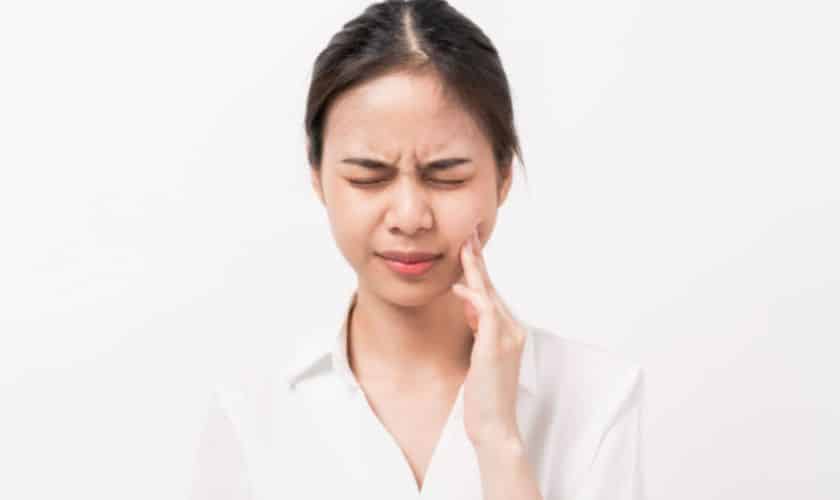Migraines are a debilitating condition that affects millions of people worldwide. While there are many known triggers, such as stress, hormonal changes, and certain foods, dental problems are often overlooked as a potential cause. In this article, we will explore the link between dental problems and migraines and discuss how to find relief.
Understanding The Link Between Dental Problems & Migraines
Dental problems such as tooth decay, gum disease, and misaligned teeth can cause a wide range of health issues, including migraines. The link between dental problems and migraines is often overlooked because many people do not realize the impact that dental health can have on overall health.
When dental problems are left untreated, they can cause inflammation and infection in the mouth. This inflammation and infection can then spread throughout the body, triggering a cascade of immune responses that can lead to migraines. Additionally, dental problems can cause muscle tension in the face, neck, and head, which can also trigger migraines.
Finding Relief For Migraines Caused By Dental Problems
There are multiple ways you can find relief from migraines caused by dental problems. Some of the ways are:
Addressing The Underlying Dental Issue
The first step in finding relief for migraines caused by dental problems is to address the underlying dental issue. If you are experiencing dental pain or discomfort, it is important to see a dentist as soon as possible. A dentist can perform a thorough examination and recommend dental treatment options to address the problem.
Treatment options for dental problems may include fillings, root canals, extractions, or other procedures. By addressing the dental issue, you may be able to alleviate the underlying cause of your migraines.
Over-The-Counter Pain Relievers
If you have already addressed the dental issue but are still experiencing migraines, one option is to use over-the-counter pain relievers, such as ibuprofen or acetaminophen, to manage the pain. These medications work by reducing inflammation and blocking pain signals in the body.
It is important to note that over-the-counter pain relievers only provide temporary relief and do not address the underlying issue. If you are experiencing frequent migraines, it is important to seek medical advice to determine the underlying cause and appropriate treatment.
Specialists For Managing Migraines Caused By Muscle Tension
Another option for finding relief for migraines caused by dental problems is to seek treatment from a specialist, such as a chiropractor or physical therapist, who can help alleviate muscle tension in the face, neck, and head. These specialists use techniques such as massage, manipulation, and exercises to help alleviate muscle tension and reduce pain.
Massage Therapy & Acupuncture
Massage therapy and acupuncture are also effective options for managing migraines caused by muscle tension. Massage therapy can help reduce muscle tension and promote relaxation, while acupuncture can help alleviate pain and promote overall health and wellness.
Preventing Dental Problems Caused By Migraines
Migraines are a type of headache that can cause severe pain and discomfort, and can also lead to dental problems. Migraines can cause individuals to clench or grind their teeth, which can lead to dental problems such as tooth sensitivity, jaw pain, and worn-down teeth. Here are some preventative measures to consider:
- Identify Triggers: Keep a headache diary to help identify any triggers, such as stress or certain foods, that can lead to migraines and teeth grinding.
- Manage Stress: Stress is a common trigger for migraines and teeth grinding, so learning stress management techniques, such as meditation or deep breathing exercises, can be helpful.
- Wear A Mouthguard: Wearing a custom-fitted mouthguard can help protect your teeth from the effects of teeth grinding and clenching during migraines.
- Seek Treatment For Migraines: If you suffer from frequent migraines, seeking treatment from a healthcare provider can help reduce the frequency and severity of migraines, as well as associated dental problems.
- Maintain Good Oral Hygiene: Regular brushing and flossing, along with routine dental check-ups, can help prevent dental problems caused by migraines.
By taking these steps, individuals can reduce the impact of migraines on their dental health and overall well-being.
The Bottom Line
Dental problems can trigger migraines by causing inflammation and infection in the mouth, as well as muscle tension in the face, neck, and head. If you are experiencing migraines, it is important to address any underlying dental issues and seek treatment from a specialist if necessary. By practicing good oral hygiene and managing stress, you can help prevent dental problems and migraines and promote overall health and wellness.



